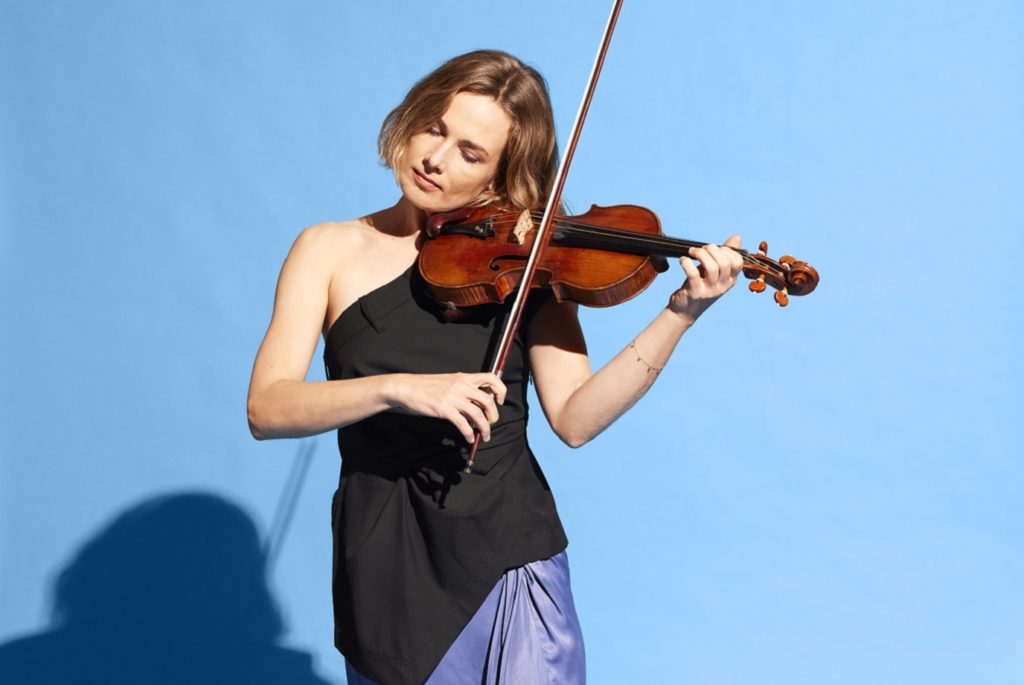For Satu Vänskä, Principal Violinist of the Australian Chamber Orchestra, cancelling a concert had never been an option. Like most musicians, she’s always lived with an ethos of “the show must go on”.
That was until March 2020, when the entire music industry was brought to a grinding halt, and concerts all around the world were cancelled due to the pandemic. Speaking to Shirley Chowdhary on this week’s episode of The Leadership Lessons, Vänskä recalls how shocking it was to have to pull back on in-person performances without notice.
“We were like: ‘It’s impossible. You can’t cancel concerts’…cancelling is not an option. It was never an option. To have these plugs being pulled off was such an unthinkable thought,” she says.
In the podcast, Vänskä shares just how devastating COVID-19 has been for those who rely on live music for a living, saying that the uncertainty of it all has been the hardest part.
“Uncertainty is, you know, it really killed us,” she explains. “I mean, the amount of performances that we’ve cancelled, it’s really sad and it’s devastating.”
“Musicians from Ed Sheeran, to opera singers, to symphony orchestras. We all make our money from selling tickets. Because streaming and all that stuff doesn’t really… nobody sells albums.
“I am very fortunate that I am in such a well-established institution as the Australian Chamber Orchestra, but I really feel for all the freelancers.”
Vänskä currently plays a Stradivarius violin at the Australian Chamber Orchestra. There are only two of these instruments in Australia. The violin she plays was built in 1726 by Antonio Stradivari, who made about 2000 instruments over his lifetime, out of which only about 600 have survived.
“I’m very speechless about the honour of being able to play such an instrument,” Vänskä says. “To have something so old and so excellent as your everyday tool, you feel very privileged, and you feel very special.”

Vänskä now lives in Sydney, but she spent her early years experiencing different global cultures. The daughter of Finnish missionaries, she lived in Japan until the age of 10 before moving to Finland. Vänskä speaks four languages, and says her upbringing helped develop a unique way of thinking.
“When you’re speaking in Japanese, for example, your brain works in a different way. You construct the sentences in a in a different way. And therefore, you see the world from a, you know, there’s a different way of approaching into things. And it’s the same thing when you speak Finnish,” she says.
“I see that’s a great gift, in fact, that I don’t have a home in that sense – a country that I really want to go back to. I find that way of thinking very limiting. It’s great to have a feeling of belonging, but I don’t see that there is a problem in having home in lots of different places.”
Speaking about the impact music has had on her life, Vänskä says that having been given the opportunity to play an instrument as a child was really important. And she would love to see every child given that same chance.
“Every child should be given the opportunity to learn an instrument. It’s something that should be really seen as an important thing. The studies are all there. It’s good for a child’s brain to learn an instrument,” she said.
Playing with others has always helped her to feel connected to those around her and given her a sense that there’s something bigger out there than just herself. This feeling is something Vänskä has held onto while live performances have been on hold.
“You get this access to something that you couldn’t achieve by yourself. Because you’re doing it with others, you’re sort of tapping into something bigger than yourself and something that’s worth aspiring.”
You can hear more of Satu’s conversation with Shirley Chowdhary in the most recent episode of The Leadership Lessons, a Women’s Agenda podcast made possible thanks to the support of Salesforce.


